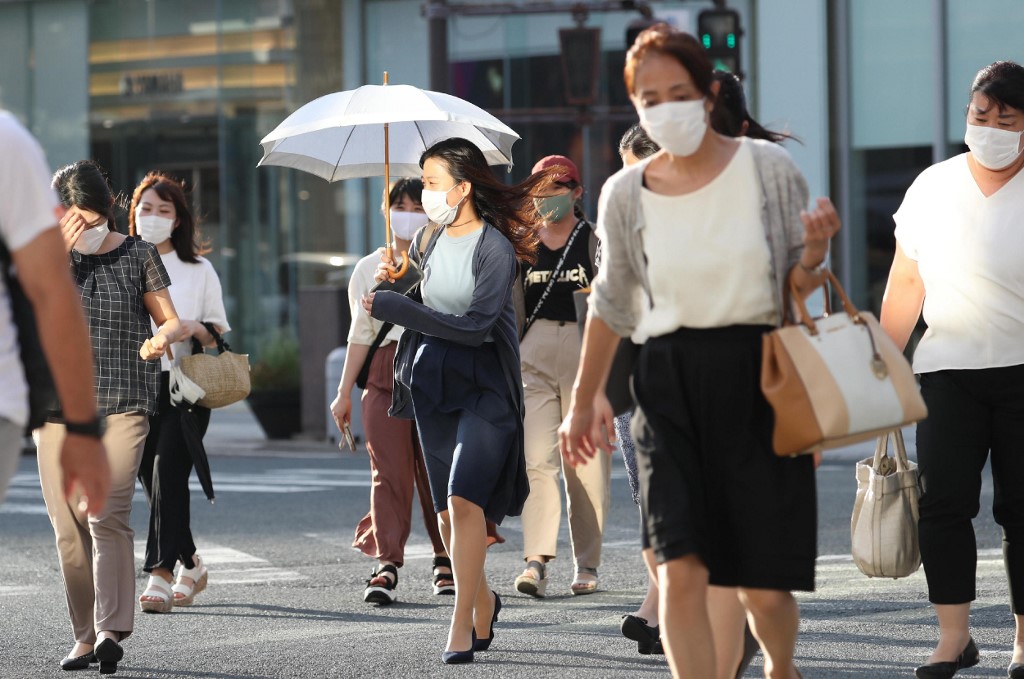(ATF) Hong Kong: Asian markets began the week on a weaker note as the resurgence in coronavirus cases across the world halted a recent rally that had been fuelled by stimulus and recovery hopes.
In Japan, where a state of emergency has been declared in several prefectures, a new strain of the coronavirus was discovered while in Germany the government has asked for curtailment of social contact after the death toll rose above 40,000. Globally, the infection count has now exceeded 90 million and the death toll is nearing two million.
China has reported coronavirus cases topping 100 in a day for the first time since July and this has made investors nervous about the nation’s economic recovery.
“The Covid-19 situation in China, especially North China, has worsened rapidly since late December, due perhaps to the more contagious strain of Covid-19 globally, a much colder-than-normal winter and an earlier-than-usual return of migrant workers to hometowns for the lunar new year (LNY) holiday,” said Ting Lu, Nomura’s Chief China Economist.
“The worsening coronavirus situation will impact economic activity, and markets may need to temper their expectations for strong pent-up consumption demand in the coming LNY holidays in mid-February,” Ting added. “With the worsening virus situation and the coldest winter in decades, growth recovery lost some momentum in recent weeks. A full recovery in the services sector could be delayed, as suggested by weaker services PMI indices in December.”
Strong sentiment
Australia’s S&P ASX 200 retreated 0.90%, China’s CSI300 dropped 0.99% and the regional benchmark the MSCI Asia Pacific index slipped 0.65%. But Hong Kong’s Hang Seng index edged up 0.11% as the retreating shares were offset by strong gains in telecom and technology shares. Financial markets in Japan are closed on Monday for a public holiday.
But the underlying sentiment for emerging markets remains strong with US President-elect Joe Biden due to announce plans for “trillions” of dollars in new relief bills this week.
“A unified government will catalyse a more aggressive path for US fiscal stimulus, and we believe that Biden would likely pass a substantial relief aid package in 1Q 2021 via the reconciliation process that is around USD1 trillion or more, and that later in his first term, Biden will successfully implement major spending initiatives on infrastructure, renewable energy, the environment and healthcare,” said Bank of Singapore’s Eli Lee, Head of Investment Strategy and Conrad Tan, investment strategist. They raised 2021 GDP forecast for the United States to 6% from 5% and lifted the US 10-year yield estimate to 1.50% from 1.20%.
US Treasuries stabilised after their recent sell-off with the 10-year yield at 1.10% – it has gained 20 basis points this month alone. Gold edged up 0.2% at $1,850 per ounce and the US dollar climbed 0.4% to 90.5 against a basket of currencies, near a month high.
Also on Asia Times Financial
- China’s long-shot shale gas game
- New China outbreak unnerves officials, sends oil price down
- Trump China delisting impact hits structured products of US banks
- Tesla, Nio cement China’s importance to global EV industry
- Baidu and Geely announce EV tie-up
- China rare earths outlook for 2021
- Taiwan foreign minister hails lifting of curbs on US diplomatic ties
- China’s factory gate prices fall at slowest pace since February
Asia Stocks
- Australia’s S&P ASX 200 retreated 0.90%
- Hong Kong’s Hang Seng index edged up 0.11%
- China’s CSI300 dropped 0.99%
- The MSCI Asia Pacific index slipped 0.65%.
Stock of the day
China Mobile shares rose as much as 8.8% after it signed a network asset operating lease for the year at 6.5 billion yuan versus the 5 billion yuan for 2020, a rise of 30%.
























